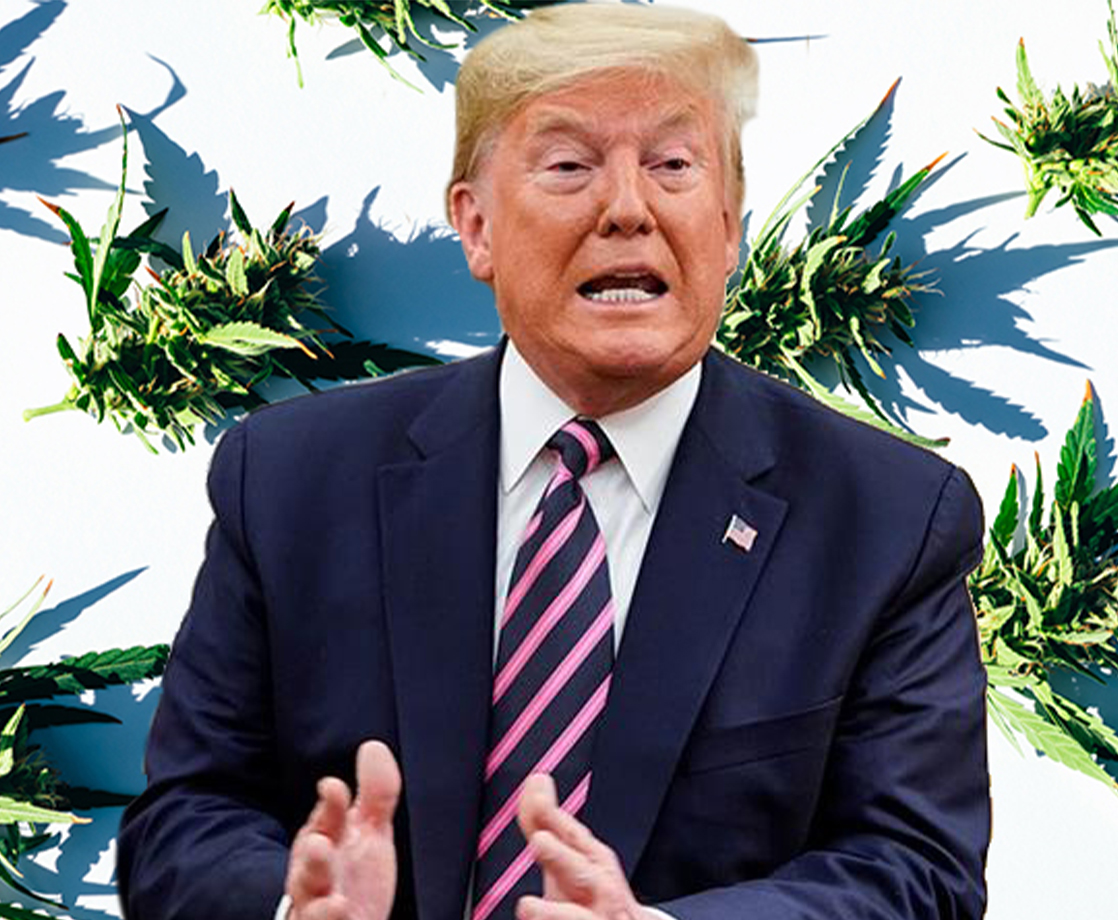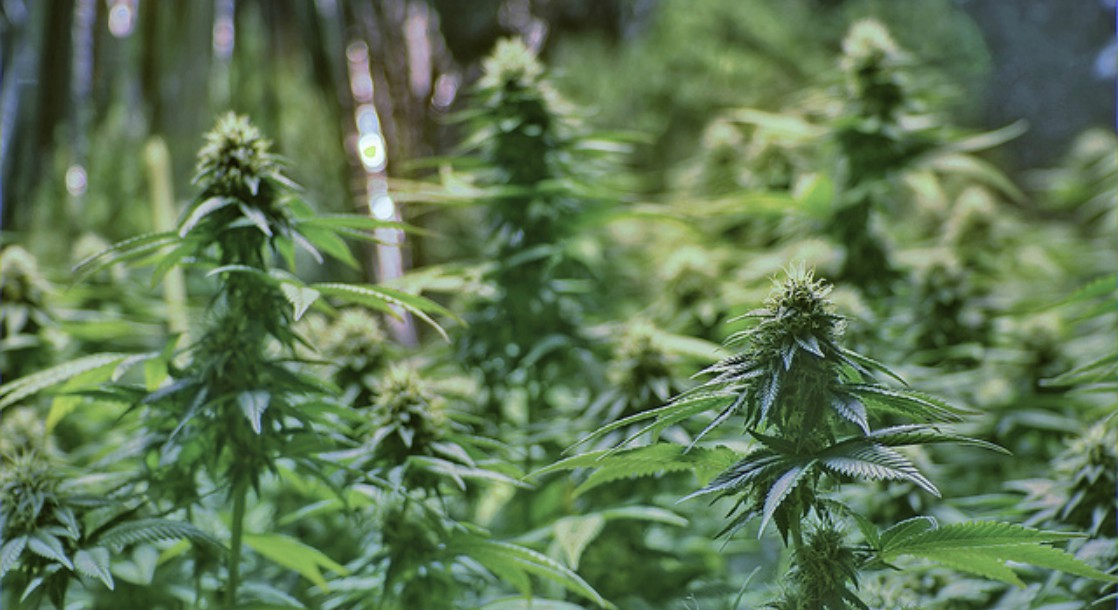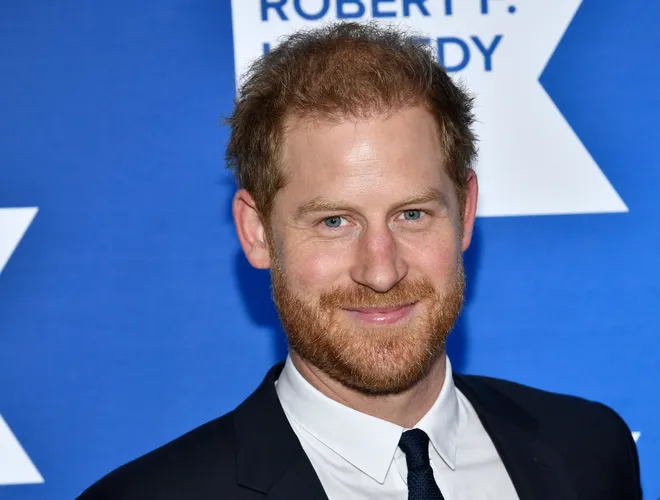The Trump administration believes that the DEA’s 50-year-old program for growing federally licensed marijuana is illegal. At least, that’s what a “secret” memo released to the public this week claims.
The memo’s existence also explains why scientists who’ve tried to apply for an Obama-era weed cultivation program have made zero headway over the past three years, despite paying thousands of dollars in application fees and spending hours upon hours filling out mountains of paperwork.
Now, before anyone cries “fake news,” understand that this memo isn’t an unverified leaked document coming from some anonymous source. On Wednesday, the US Department of Justice — whose Office of Legal Counsel (OLC) wrote the memo in 2018 — published the document on its website. You can read it for yourself here.
Basically, the memo offers an interpretation of the UN Single Convention treaties and how those agreements relate to legally growing weed in the US. And since it’s an interpretation of the law from the OLC, it’s essentially a law in and of itself.
The Single Convention treaties required every UN member nation to outlaw certain drugs, marijuana included. And the treaties do, in fact, state that only one government agency, in any given country, can oversee cannabis cultivation for research or medical purposes. That agency must also maintain ownership over the plants, and it must directly oversee distribution of plant material, too. The only exception is if the government agency assigns trusted third-parties to handle cultivation, processing, storage, and transport of the weed, which is precisely what Obama’s grower’s program was supposed to do.
The hangup lies in a technicality: The treaties state that only one government agency can handle the nation’s weed supplies. But in the US, two agencies — the DEA and the National Institute of Drug Abuse (NIDA) — have been in charge of federally licensed marijuana for a little over half a century.
“If this view of the law is correct, and this overhaul of the rules that the DEA applies to registered manufacturers really is necessary to comply with the convention, then the rules that have been on the books have been in violation of the [UN Single Convention] treaty,” Shane Pennington, one of the attorneys who successfully sued the DOJ to obtain the memo, told MERRY JANE over the phone last month. “That’s kind of surprising. You’re telling me, all this time when NIDA was running parts of this program, and the DEA was running other parts, that that was still illegal under international treaty obligations?”
“That should raise eyebrows,” he continued. “People should be questioning this.”
Hey, open and shut case, right? If we just let NIDA or only the DEA or only some other government agency take over the weed grower’s program, it’ll all be good, yeah?
No, not at all.
The problem with this secret OLC memo is that, well, it was kept a secret. And that secrecy reveals that the Trump administration, which has only paid lip service to marijuana reform, went behind America’s back and made under-the-table moves to ensure that pot prohibition remained firmly in place.
Obama’s Justice Department under then-Attorney General Loretta Lynch thought it was acting in good faith by establishing the third-party grower’s program. For decades, American scientists have complained that the federal government’s monopoly weed — the only weed that’s permitted for legitimate research in the US — is utterly unsuitable for research purposes. By allowing the researchers to grow the cannabis themselves, with the DEA’s oversight, both the scientific and the law enforcement communities could trust one another enough to advance our understanding of the plant.
The OLC likely began drafting the memo sometime in 2017, during Jeff Sessions’ tenure as head of the Department of Justice. Yet even after the staunchly anti-weed Sessions resigned as US Attorney General, the DOJ enforced this policy in secret so that those targeted by it — like American scientists trying to save our military veterans from incredibly high suicide rates — could never mount an appropriate defense.
“The American public should be able to see what its government is doing,” Pennington told MERRY JANE in an email last month. “That’s the law. When we can’t see the government’s reasons for making dramatic changes to important regulatory schemes, we can’t comment on them effectively; we don’t know who is responsible for what; and we can’t understand, much less protect, our rights.”
“Transparent government promotes good policy; secret law hinders — and often defeats — it,” Pennington added.
Given that the Trump administration has done little to advance marijuana legalization in the US, it’s probably safe to say the secret memo did, indeed, hinder good policy. Which shouldn’t surprise anyone: Earlier this year, a Trump 2020 campaign spokesperson said that Trump would not federally legalize marijuana if re-elected for a second term.











